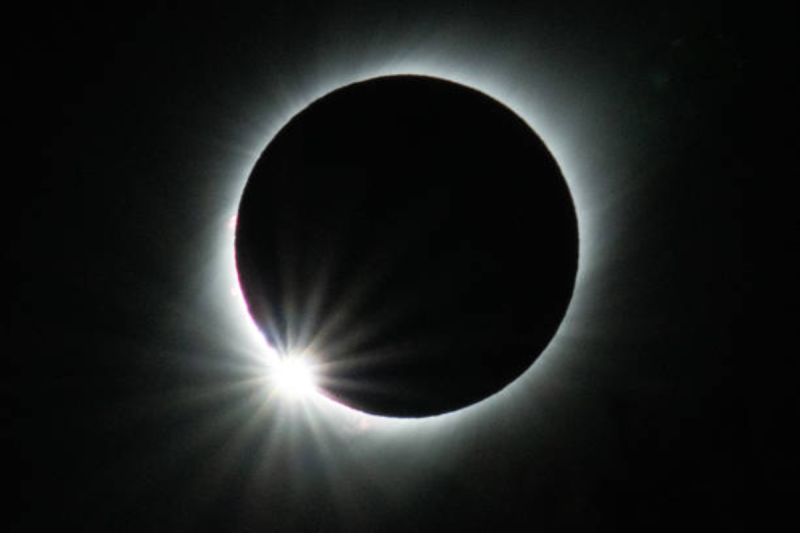
Solar Eclipse 2027 (Representative Picture: Patrika)
Solar Eclipse 2027: The solar eclipse occurring on August 2, 2027, will be exceptionally rare as it coincides with the Moon being at its closest point to Earth, resulting in a totality lasting nearly 6 minutes. Daylight in several parts of Europe, North Africa, and the Middle East will transform into a night-like darkness for a few minutes.
The solar eclipse on August 2, 2027, will not be an ordinary one. On this day, the Moon will align with the Sun in such a way that daylight in many countries will resemble a deep evening for a few minutes. People in several parts of Europe, North Africa, and the Middle East will witness a unique natural spectacle. According to scientists, this eclipse is special because it will occur during the Moon's perigee (its closest point to Earth). This will make the Moon appear larger and the Sun slightly smaller, leading to a longer period of totality, or complete darkness.
During this eclipse, temperatures may drop by a few degrees, stars will become visible in the sky, and birds will suddenly fall silent. These changes are not just thrilling but represent real scientific effects. The path of totality will begin in the Atlantic Ocean, passing through the Strait of Gibraltar, the coast of Andalusia in Spain, Morocco, Algeria, Tunisia, Libya, and the Nile Valley regions of Egypt. The longest duration of darkness, approximately 6 minutes, will be observed in Luxor and Aswan, Egypt.
The timing of the eclipse will vary by region—late morning near Gibraltar, around midday in northern Algeria and Tunisia, and before noon in Egypt. Millions of travellers are expected to converge on these locations, prompting local authorities to issue advance alerts regarding travel and security preparations.
To view the eclipse safely, it is essential to use special eclipse glasses certified with ISO 12312-2. Solar filters must also be attached to telescopes, cameras, or binoculars. It is permissible to view the Sun without filters for a brief period during totality, but only if you are within the path of totality.
In August, North African countries typically experience hot and dry weather, reducing the likelihood of clouds and increasing the chances of clear skies. However, light morning fog near the coast or dust from the Sahara could slightly affect visibility. The Luxor and Aswan regions are generally considered the best for clear skies.
If one misses this eclipse, another opportunity will not come soon. A total solar eclipse lasting this long will not be visible again for many decades. Therefore, according to both scientists and travellers, this is one of the most significant and spectacular celestial events of the 21st century.
Published on:
27 Nov 2025 05:54 pm
Big News
View AllAstrology and Spirituality
Trending
